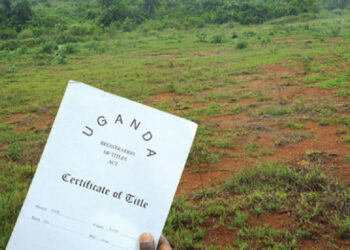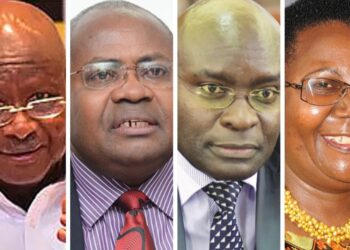CIVICUS, the global civil society alliance, and more than 600 civil society organisations across 70 countries have written an open letter to states, urging them not to violate human rights while responding to COVID-19.
The majority of signatories – over 300 – are based in Africa.
The letter raises concerns about countries that are abusing emergency powers to restrict fundamental rights. Within Africa it mentions: Niger and Egypt where journalists and human rights defenders have been threatened for speaking out about the pandemic, or for criticising the government’s response. The letter urges Libya, Egypt and Morocco to include human rights defenders among those being released. And in Uganda there are concerns about human rights violations against LGBT+ persons.
The letter below also contains 12 recommendations to states.
| We are in this together, don’t violate human rights while responding to COVID-19
As governments are undertaking extraordinary measures to curb the spread of COVID-19, we recognise and commend the efforts states are making to manage the well-being of their populations and protect human rights, such as the rights to life and health. However, we urge states to implement these measures in the context of the rule of law: all responses to COVID-19 must be evidence-based, legal, necessary to protect public health, non-discriminatory, time-bound and proportionate. All responses to COVID-19 must be deeply rooted in these cross-cutting principles: respect of human dignity, independence and autonomy of the person, non-discrimination and equality, and respect of diversities and inclusion. Any response must comply with international standards on emergency legislation and respect human rights and the rule of law. Extraordinary measures are legitimate only under exceptional circumstances, such as when there is an immediate threat to public health. These measures should be used in a necessary and proportionate manner and should be aligned to international human rights law. To date, there are more than two million confirmed cases of COVID-19 around the world. The next few weeks are crucial as measures put in place by states will determine the course of the pandemic. Resources will come under severe strain and there may be more shortages of personnel and protective equipment which will put countries under immense pressure. More cases may be reported which will lead to stricter measures being implemented by some states. Despite the challenges faced by governments across the globe, responses to the pandemic should not be used as a pretext to restrict civic space. We are particularly concerned by states that are abusing emergency powers to place restrictions on fundamental rights, including freedom of expression and the right to access information. Across the globe, journalists, human rights defenders and other independent voices are threatened and punished for speaking out about the extent of the pandemic in their countries, or the measures adopted in response to COVID-19. These countries include Tajikistan, Niger, Egypt, Thailand, Saudi Arabia, El Salvador, Bangladesh and China. Other governments are adopting legislative measures to curtail fundamental freedoms, such as in Hungary, Armenia, Azerbaijan, and the Philippines. Some states are abusing their powers to suppress peaceful assemblies, including in Hong Kong. Governments including India, Myanmar, and Bangladesh, have enforced internet restrictions and shutdowns which prevent many people from accessing vital information about how to protect themselves against the virus. These restrictions also negatively affect the growing number of people who are working remotely so that they can practice physical separation. Access to information is critical in efforts to curb the spread of COVID-19. Governments must proactively share key information about the pandemic as soon as it is available, such as important decisions, the number of cases, availability of equipment and supplies, and clear advice. Information should be widely available to everyone, not just selected government officials or other intermediaries, as is the case in Uzbekistan. This ensures that individuals, communities and health workers can react quickly and responsibly to new information. Migrants in detention centers, for example in Mexico and Greece, are living in dire conditions without access to adequate hygiene facilities. It is also impossible for them to practice physical distancing due to overcrowding. All asylum seekers who arrived in Greece since 1 March 2020 have been denied access to asylum. We commend states such as Portugal which have temporarily lifted restrictions on asylum seekers with pending applications. This ensures they have access to healthcare and social security in line with the rest of the population. Women and children who experience or are at risk of domestic violence may be forced to remain in dangerous situations with an abusive partner or relative. At the same time, access to places of safety and support services may be reduced as shelters are impacted by public health measures and criminal justice resources are diverted. We are concerned by governments confining persons with disabilities within institutions in several countries including France. This contravenes the UN Convention on the Rights of Persons with Disabilities and it places persons with disabilities at an increased risk of contracting COVID-19. We are concerned by governments that have imposed restrictions leading to human rights violations against LGBT+ persons, including in Peru, Uganda, and Colombia. Governments need to ensure that their policies are inclusive and that all public officials are trained on LGBT+ rights. Several countries have released prisoners as part of their response to curb the spread of the pandemic. These actions are commendable as congested detention facilities and prisons are high risk areas. We urge countries including Egypt, Bahrain, Kuwait, Iran, Israel, Libya, Morocco, Syria, Turkey, India, and the UAE to include human rights defenders, peaceful protesters and prisoners of conscience among those being released. We are further concerned by the growing practice of monitoring and closely controlling people’s movements, even at the cost of their privacy. Efforts to contain the virus must not be used to expand systems of invasive digital surveillance. Israel and Taiwan are notable examples of how technological surveillance is being used in this context, and how disproportionate the impact of such measures may be when they are not strictly defined and limited. The unprecedented challenges presented by COVID-19 present an opportunity for states and civil society organisations to work together to defeat the virus. We urge states to be transparent and accountable: this will ensure that any measures adopted to prevent the spread of COVID-19 will be effective. Specifically, we urge states to:
|
Do you have a story in your community or an opinion to share with us: Email us at editorial@watchdoguganda.com











